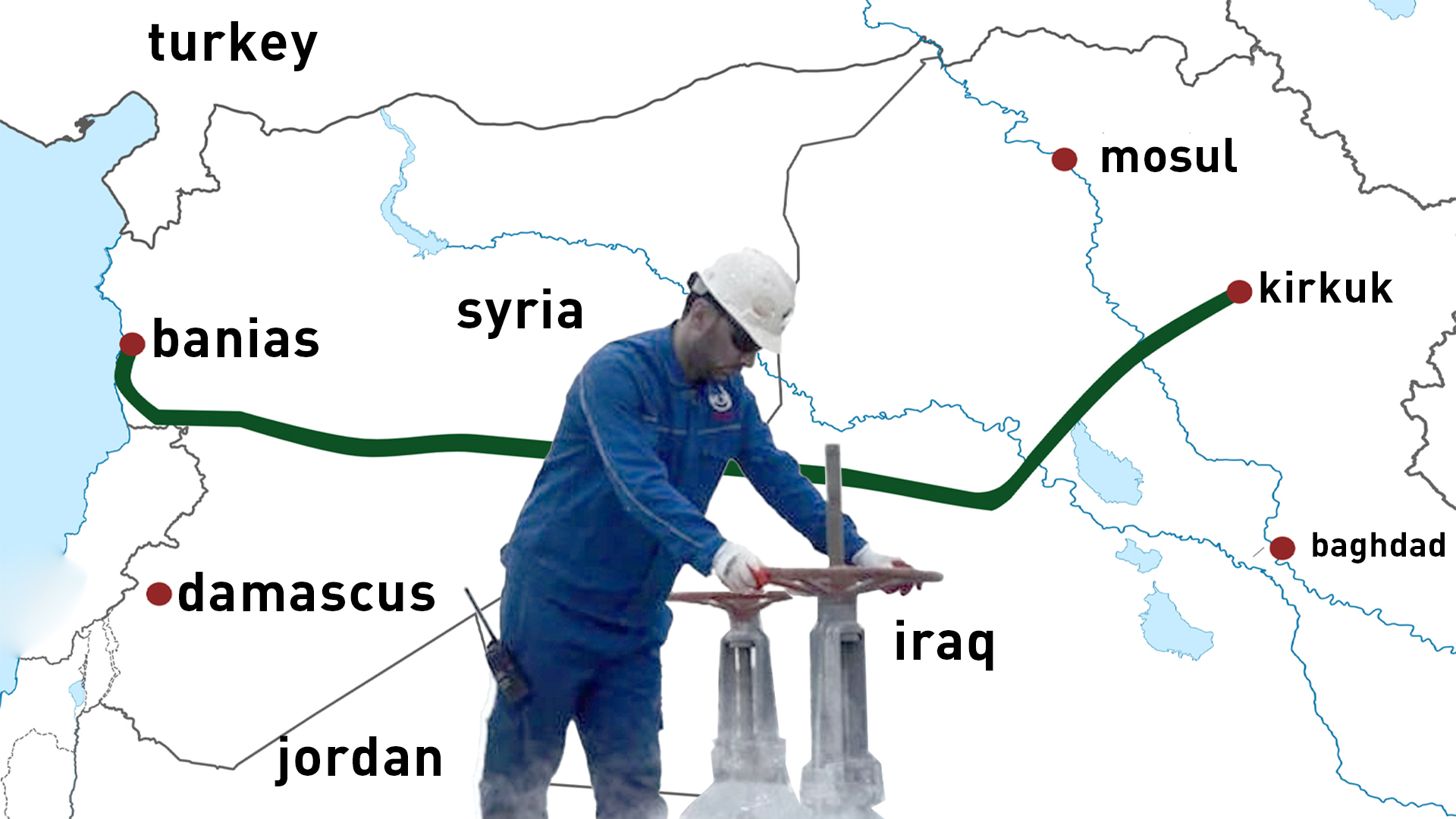Reviving Kirkuk–Baniyas Pipeline Could Earn Syria $200 Million Annually, Experts Warn of Security and Political Risks
Reviving Kirkuk-Baniyas pipeline could earn Syria $200M annually in transit fees. Experts said to Kurdistan24, Iraq could export 150M barrels yearly via Mediterranean, but security risks and political distrust remain key obstacles.

ERBIL (Kurdistan 24) – A senior energy researcher has revealed that if the Kirkuk–Baniyas oil pipeline is reactivated, Syria could generate between $150 million to $200 million annually in transit fees, while Iraq could export 110 to 150 million barrels of crude per year through the Mediterranean route.
Aditya Saraswat, director of research at a global energy consultancy, said that crude production from Iraq’s Kirkuk fields may reach 400,000 barrels per day by 2030. He noted that reviving the pipeline could provide a shorter and cheaper alternative for exports compared to Turkey’s Ceyhan port.
However, energy expert Arshad Taha told Kurdistan 24 that Iraq is reluctant to rely on Syria due to its fragile security conditions and the availability of established Asian markets with long-term buyers.
On Aug. 12, 2025, Syrian Energy Minister Mohammed Bashir met with Iraqi Oil Minister Hayyan Abdulghani in Baghdad to discuss bilateral energy cooperation. During the talks, Bashir acknowledged Syria’s weak domestic production, disclosing that the country imports nearly 3 million barrels of crude monthly to meet local needs.
He stressed the importance of restoring oil linkages with Iraq and highlighted the urgent need for a technical and comprehensive assessment of the Kirkuk–Baniyas line, which he described as “too old” for direct resumption.
Abdulghani, in turn, expressed Iraq’s willingness to study options for reactivation, suggesting consultations with specialized agencies to determine whether the old pipeline should be rehabilitated or replaced with a new one.
Saraswat outlined the financial advantages of using the Kirkuk–Baniyas route: the cost of shipping oil southward from Kirkuk to the Gulf is around $1 per barrel, compared to $2–3 per barrel via Turkey’s Ceyhan pipeline, and $3–5 per barrel through Gulf ports.
“Restoring the line could alter the balance in Baghdad’s negotiations with Ankara,” Saraswat said, noting that Iraq could leverage Syria as an alternative route to reduce dependency on Turkey for northern exports.
He added, however, that Iraq and Syria must carefully weigh the benefits against financial and geopolitical risks, stressing that a full evaluation is required before launching any rehabilitation project.
Despite the apparent benefits, Taha warned that Iraq remains unwilling to place its oil exports under the threat of Syria’s unstable security environment.
“Iraq has secure and permanent customers in Asian markets,” Taha explained. “Therefore, Baghdad sees little incentive in exposing its crude to risks by routing it through Syria.”
He also noted that while both governments have expressed interest, political distrust remains a significant obstacle, casting doubt on whether a concrete agreement can be reached soon.
If implemented, the project could provide Syria with a stable financial lifeline of $200 million annually, while also offering Iraq an alternative export corridor. Yet, analysts stress that without political alignment, regional security, and substantial investment in infrastructure, the revival of the Kirkuk–Baniyas pipeline will remain a contested and uncertain prospect.
